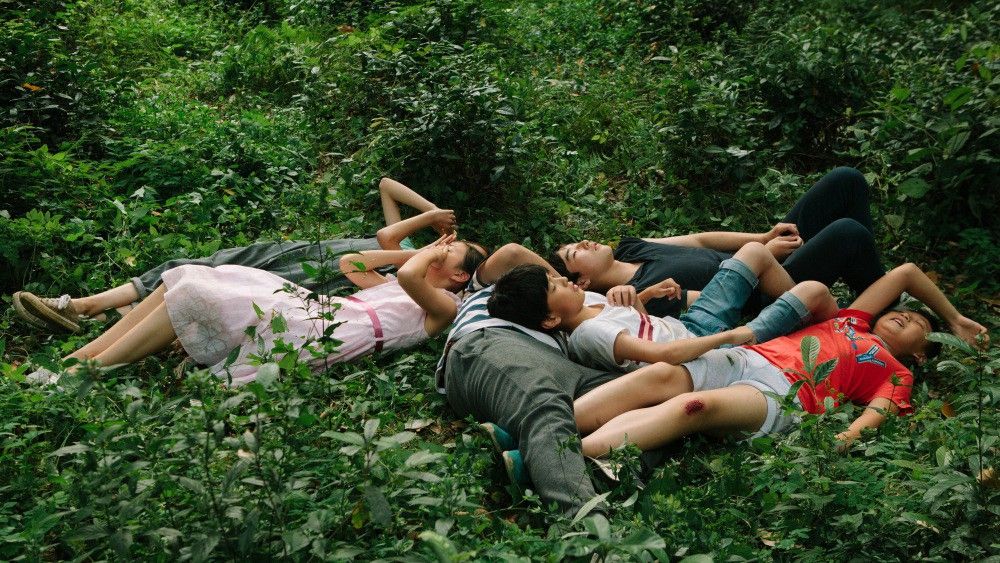Suburban Birds (Qiu Sheng, 2018)

The Northwest Film Forum’s commitment to rethinking the movie release calendar continues this week, and part of last week, with the oddball Wednesday-Tuesday run of Suburban Birds, the feature debut of director Qiu Sheng. That the film should play here at all is somewhat remarkable, contemporary Chinese cinema releases being almost entirely limited to small runs of pop genre films. Sure, festival blockbusters like Jia Zhangke’s Ash is Purest White and Bi Gan’s Long Day’s Journey Into Night play too, but it’s exceedingly rare that a film by an unknown Chinese director gets an art house release. The film has been well-received at Locarno and the New York’s New Directors/New Films Festival, and has the backing of a solid distributor in Cinema Guild. That is likely because, like Bi Gan, who also had his debut feature released on the art house circuit, Suburban Birds is heavily influenced by the works of established and well-known East Asian star directors. Audiences familiar with Jia and Apichatpong Weerasethakul and Tsai Ming-liang will have no trouble relating to this beautiful, dreamy, yet precise tour through the contradictions of modern China.
Set in an unnamed Chinese city, one of those meticulous and vast urban spaces that has cropped up over the past twenty years, where a surveying crew is attempting to account for the subsidence of various buildings. The new city is literally sinking into the ground. Exploring an abandoned elementary school, one of the crew, Xia Hao, discovers an old diary and the next hour or so of the film is an extended flashback, or dream, of his childhood, complete with title cards for the date and day of the week (but not the year), as if we too are reading the lost diary. There’s little forward momentum here: the middle school kids, almost entirely without adult presence, wander their town, in between forest and construction zones, exploring the city as the old is being demolished to make way for the new. The two timelines, past and future Xia Hao, intersect in minor ways, recalling more the temporal contradictions of Hong Sangsoo’s In Another Country than anything more serious (Bi Gan’s scrambling of time in Kaili Blues, for example). The middle section is less coming of age than slice of life, what plot direction it has is more toward a falling away than growing up, entropic rather than progressive.
Back in the present (or the future), Xia Hao is increasingly convinced that the whole city is resting on a groundwater leak, that its unstable foundations will eventually, possibly quite soon, lead the whole thing to collapse. The metaphor here is not the least bit subtle, but Qiu underplays it, relying on image and landscape and cityscape, captured in crystal clear and brightly colored 1.33 images, to build a mood of societal unease, of inevitable collapse. In this it recalls another recent Chinese film to have been released here, Zhao Liang’s 2015 documentary Behemoth, which ended its exploration of China’s coal industry in a vast, freshly-constructed ghost town, a space of cutting edge modernity that is nonetheless wholly empty of human habitation. The streets of Suburban Birds are similarly empty, we really only see Xia Hao and his companions, past and present, though the sounds of others are omnipresent. Birds chirp constantly in the past, but there’s only construction and traffic in the present, and the drip drip drip of the new city’s impending watery doom.
